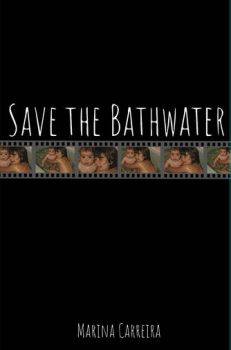Max Gray at The Quarterly Conversation:
 “Bloodlines” employs numbered sections, one of Carreira’s favored devices, to divide the poem into a triptych. She uses time and place to distinguish each, taking us from her adolescence in Portugal to early adulthood in New Jersey to the present moment. In the first, the adolescent version of Carreira feels shame about her body—not the first time we encounter, in heartbreaking fashion, the painful self-consciousness of a young narrator—while, at the same time yearning for physical connection. She wants “a God-fearing man,” but she observes that a young neighbor of hers is “a pretty boy.” The end of this section is marked by the advent of menstruation, a hallmark of maturity that doubles as a sign of heritage and hardship. While the neighbor boy collects the material possessions that “make for a good life,” the menstrual signature on the speaker’s bed sheets “promises thorns no bread or gold can dull.” The concrete trappings of health and prosperity are conflated with the promise of a bright future, but “blood,” in all its multi-layered meaning, complicates the simple promise of “bread or gold.” Profoundly, for Carreira, this duality echoes the divided heart of the Portuguese immigrant community in America—one heart striving and struggling forward in its quest for material security and the American Dream, while the other looks backward toward an idealized past that continues to drift further and further out of reach with the passage of time.
“Bloodlines” employs numbered sections, one of Carreira’s favored devices, to divide the poem into a triptych. She uses time and place to distinguish each, taking us from her adolescence in Portugal to early adulthood in New Jersey to the present moment. In the first, the adolescent version of Carreira feels shame about her body—not the first time we encounter, in heartbreaking fashion, the painful self-consciousness of a young narrator—while, at the same time yearning for physical connection. She wants “a God-fearing man,” but she observes that a young neighbor of hers is “a pretty boy.” The end of this section is marked by the advent of menstruation, a hallmark of maturity that doubles as a sign of heritage and hardship. While the neighbor boy collects the material possessions that “make for a good life,” the menstrual signature on the speaker’s bed sheets “promises thorns no bread or gold can dull.” The concrete trappings of health and prosperity are conflated with the promise of a bright future, but “blood,” in all its multi-layered meaning, complicates the simple promise of “bread or gold.” Profoundly, for Carreira, this duality echoes the divided heart of the Portuguese immigrant community in America—one heart striving and struggling forward in its quest for material security and the American Dream, while the other looks backward toward an idealized past that continues to drift further and further out of reach with the passage of time.
more here.
